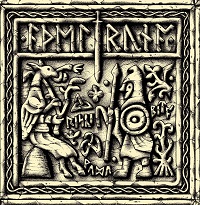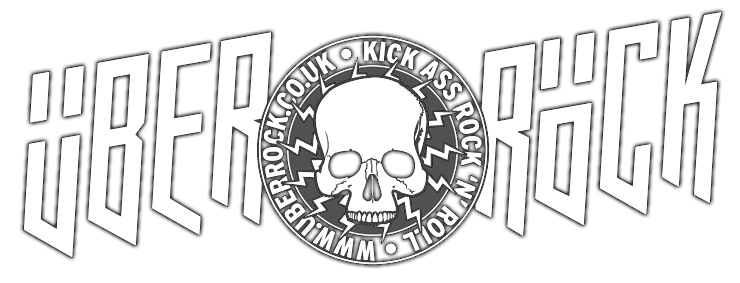By Bona Pjarren
 Æþelruna started in 2011 after the previous incarnation Adalruna ended. Where Adalruna was a celebration of pan-Germanic unity, Æþelruna focusses on pre-Christian English (or Anglo-Saxon) heritage, with most vocals being performed in Olde English by the sole member, Wulfhelm. Æþelruna started by releasing a single ‘On Modranihte’ in 2011 but is most known for a cover of the Burzum classic ‘Det Som Engang Var’ on the tribute album ‘Forsvunnet Filosofem’ in 2012. These tracks, along with several other demos and cover songs, were collected on the official compilation ‘Ealdgesegena’ in 2018.
Æþelruna started in 2011 after the previous incarnation Adalruna ended. Where Adalruna was a celebration of pan-Germanic unity, Æþelruna focusses on pre-Christian English (or Anglo-Saxon) heritage, with most vocals being performed in Olde English by the sole member, Wulfhelm. Æþelruna started by releasing a single ‘On Modranihte’ in 2011 but is most known for a cover of the Burzum classic ‘Det Som Engang Var’ on the tribute album ‘Forsvunnet Filosofem’ in 2012. These tracks, along with several other demos and cover songs, were collected on the official compilation ‘Ealdgesegena’ in 2018.
Released this past Monday, to coincide with the winter full moon, the album consists of three tracks. According to Wulfhelm, the first song, ‘saga hƿæt ic hatte’ adapts elements from various Old English sources such as the Æcerbot, Ruthwell Cross and the Franks Casket and featuring some traditional melodies. The title is taken from a formulaic challenge found at the end of some of the Exeter Book riddles where the audience is instructed to “say what I am called”, which in the case of the Ruthless Cross inscription is answered by the Brussels Cross – “Rod is min nama”. Azrael of the ‘True English Black Metal’ coterie Heathen Deity provided rhythm and acoustic guitars for this song as Wulfhelm was unable to record them at the time this was recorded.
Wulfhelm goes on to explain that the second track, ‘Ƿe gebloten’ is an instrumental adaptation of parts of Henry Purcell’s 17th-century opera ‘King Arthur, or The British Worthy’ while the third, ‘Þæs ofereode þisses sƿa mæg’, adapts the Anglo-Saxon poem that has come to be known as Deor after its narrator, a scop (skald or bard) who has been replaced by his lord and recounts several myths and legends where hard times were seemingly overcome. The track features at least one traditional melody and a guest vocalist for some parts.
And so to my assessment of the album. Opener ‘saga hwæt ic hatte’ certainly has loads of atmosphere starting with Gregorian style vocal harmonies before launching into full on black metal. It does however keep a melodic edge which keeps it accessible. There are some nice acoustic drops to punctuate the metal mayhem. It has a strange folk whistle part that combines with the onslaught. I was not sure how well it fitted initially but, in fairness, it did grow on me. It felt like there were more folk elements introduced as it went on. It is certainly an ambitious track which while at times is bitty, on the whole works.
‘Woden First To Thee’ is technically a rather interesting cover. It combines classical, particularly choral elements, within in a broadly melodic metal framework. And finally we have ‘Þæs ofereode ðisses sƿa mæg’, which means “that was overcome, so may this be”, and is an album’s worth of material in itself. Again the choral and classical elements are there from the start. The transition to the black metal elements is smoother than on the first track and feels better integrated. The various ideas and passages seem to fit better together and consequently it feels more like a cohesive piece of music in comparison. There are some clever changes of pace as well as segments that really mix up classical or folk with the metal.
In conclusion, this is an epic album that covers a lot of ground and is extremely ambitious. I did feel that the Wulfhelm found his way and warmed to his task more as the album progressed. While I readily admit this is not an easy listen it is worth giving it a try.
- ‘Risci Bita Wudu’ is out now. You can get your copy HERE.
- All content © Über Rock. Not to be reproduced in part or in whole without the express written permission of Über Rock.
